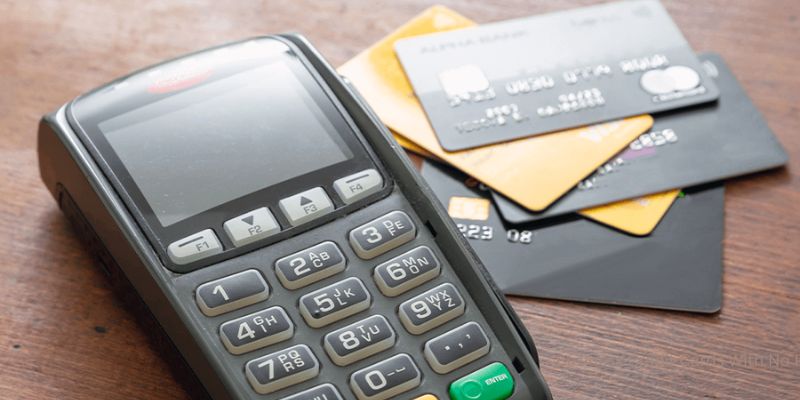If you’re looking to buy a home this year, you may consider buying a turnkey home. While a turn-key purchase has many benefits, such as moving into the property right away with no need for renovation or work, it isn’t always the best choice for everyone.
Before deciding on purchasing a turn-key property, buyers must weigh the pros and cons to decide which route is best for their unique situation. In this post, we'll go through each factor of buying turn-key homes in detail so you can make the most educated decision possible to suit your needs.
What Is a Turn Key Home?
A turn-key home is a property that has been fully renovated and is ready for move-in without any need for additional repairs or upgrades. The term "turn-key" refers to simply turning the key in the door and immediately being able to live in the property without needing to do anything else. A turn-key home can be a great option for those looking to buy a house with minimal hassle, and it can also provide a great opportunity for buyers who may need renovations or repair experience.
When buying a turnkey home, buyers should be aware of the pros and cons of this type of purchase. On the one hand, they will likely save time on renovations as all major maintenance and repairs have already been completed, which can be a great advantage for those who don’t have the time or experience to do such work.
Buyers may also benefit from increased home value due to the upgraded features that turn-key homes tend to come with, including brand-new appliances and finishes.
Pros of Buying a Turn Key Home
Save Time On Renovations:
No need to spend months completing renovations and repairs.
Cost Savings:
It can be cheaper than buying a fixer-upper requiring additional renovation work.
Increased Home Value:
Updated features can add value to the property immediately, increasing its resale potential.
Energy Efficiency:
Most turnkey homes come with energy-efficient appliances and fixtures, which can help reduce utility bills in the long run.
Reduced Risk of Mold & Pests:
Due to the new materials used for renovations, there’s less chance of mold or pest infestations after move-in
Warranty Protection:
Buyers often get a warranty on the renovation work done when purchasing a turnkey home, providing protection from any unforeseen problems.
Stress-Free Move-in Process:
There’s no need to worry about renovations and repairs when moving into a turnkey home, as it’s already in perfect condition.
Less Time On Market:
A fully renovated home will generally sell faster than a fixer-upper, which can be great for those looking to make a quick move on their investment.
Financing Options:
Some lenders offer special financing options for buyers of turn-key properties that may not be available for buyers of fixer-uppers.
Cons of Buying a Turn Key Home
Lack of Personalization:
Unlike a fixer-upper where you can choose your finishes and materials, with a turn-key home, the renovations are already done.
Limited Negotiating Power:
The seller may not be willing to negotiate on price since they have already put in so much work on the property.
Higher Initial Cost:
Turnkey homes tend to cost more than fixer-uppers because buyers are paying for all of the renovation work that has been done.
Hidden Issues:
It’s possible that there could be hidden issues or problems with the property that weren’t taken care of during renovations, such as structural damage or wiring problems.
Inaccurate Representation:
It’s possible that the seller may not be entirely honest about the property's condition when selling, so it’s important to do your due diligence on any turnkey homes you are considering buying.
Potential for Over-improvement:
Suppose you plan on reselling the property in the future. In that case, you might have overspent on certain features or renovation elements that won’t necessarily add value for potential buyers downed Options:
Turnkey properties can be more limited in location and size than fixer-uppers, as they often tend to be smaller and located in more urban areas.
Limited Budget:
If you are looking for a turnkey home with a limited budget, it can be difficult to find one that meets your needs as they tend to be more expensive than fixer-uppers.
Risk of Future Work:
Even if you buy a turnkey property, there is always the risk of additional work and renovations due to wear and tear or unforeseen issues.
Tips for Buying a Turn Key Home
Get a Home Inspection:
Before buying any property, it’s important to get a home inspection from an experienced and qualified inspector to ensure the property's condition.
Obtain Documents:
Be sure to ask for all relevant documents related to the renovation work done on the turn-key home, including permits and contractor invoices, as this will help validate the quality of work done.
Consider Future Resale Value:
When evaluating potential turn-key homes, consider how they might impact resale value if you decide to sell down the road.
Know Your Budget:
It’s important to understand your budget before looking at turn-key homes so that you don’t get in over your head.
Compare Prices:
Do some research on the area and compare prices between turn-key homes and fixer-uppers to determine which route is best for you in terms of price.
Buyer Beware:
Be sure to do your due diligence and be vigilant when looking at potential turnkey homes, as there may be hidden issues with the property that weren’t taken care of during the renovation process.
Look online First:
These days there are many websites dedicated to buying and selling turn-key properties, which can be a great place to start your search for the perfect home.
Hire a Real Estate Agent:
It’s always beneficial to have an experienced real estate agent on your side when navigating the turn-key housing market so that you can get the best advice and guidance possible.
Know Your Rights:
Familiarize yourself with all the laws related to purchasing a turnkey home in your area to know your rights as a buyer and ensure you are getting the most out of your purchase.
FAQs
How does turnkey investing work?
Turnkey investing is when an investor buys a property that has already been renovated and is ready for rental. The investor can start renting the property immediately without any additional work or renovations.
Are there any drawbacks to buying a turnkey home?
Yes, there are potential drawbacks, such as lack of personalization, limited negotiating power, higher initial cost, hidden issues with the property, and the possibility of overimprovement. It’s important to weigh all these factors before deciding if a turnkey purchase is right for you.
Is turnkey a good investment?
It depends on your situation and goals. For some, a turn-key purchase can be a great investment due to the reduced time on the market and less risk of pests or mold. However, it’s important to research the area you are looking in to ensure it is an ideal fit for you.
Conclusion
Buying a turnkey home can be a great option for those who don’t have the time or energy to invest in fixing up an older property. However, weighing all the pros and cons of purchasing a turnkey home is important before making any decisions. With proper research and due diligence, you can find the perfect home that meets your needs and fits your budget.




